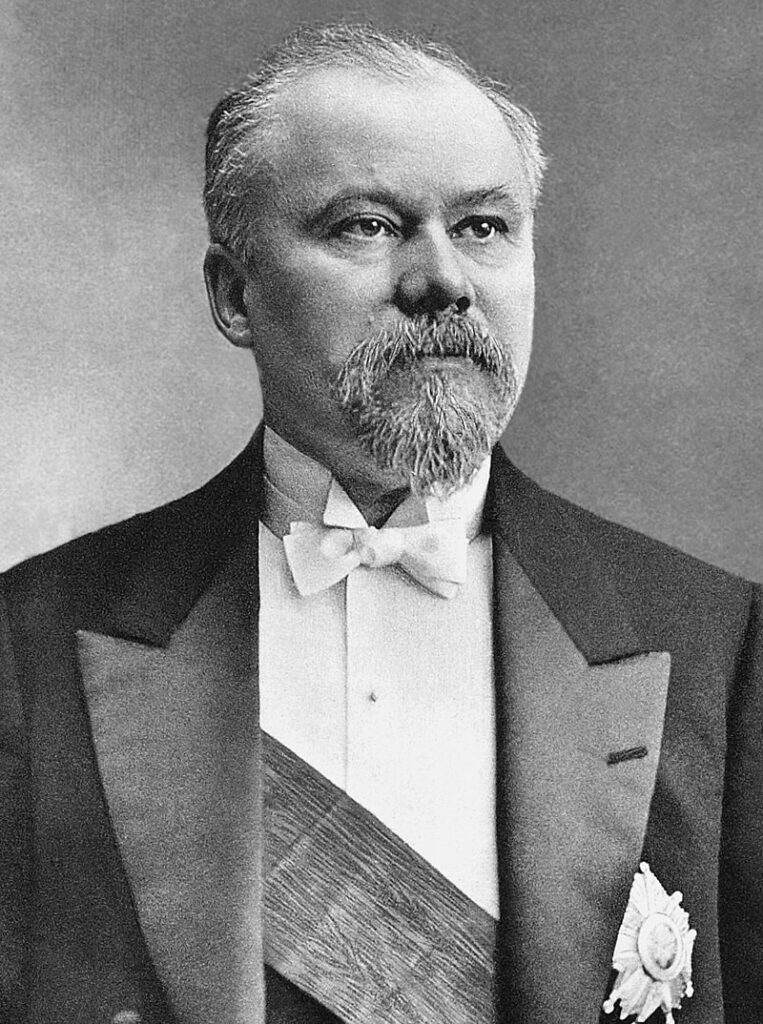
Raymond Poincaré
18 February 1913 - 18 February 1920
10
Raymond Poincaré: The French President Who Led France Through Turbulent Times
Raymond Poincaré was a French politician who served as the President of France from 1913 to 1920. He is known for his leadership during a period of great turmoil in French history, including World War I and the Treaty of Versailles. In this post, we’ll take a closer look at the life and legacy of Raymond Poincaré.
Early Life and Career
Raymond Poincaré was born in Bar-le-Duc, a small town in northeastern France, in 1860. He was educated at the Lycée Louis-le-Grand in Paris and later studied law at the University of Paris. He became a lawyer and entered politics, joining the Radical Party, a left-leaning political party that advocated for social justice and democracy.
Poincaré was elected to the Chamber of Deputies in 1887 and served as Minister of Education, Minister of Finance, and Prime Minister in several governments. He was also a member of the French delegation to the Treaty of Versailles, where he played a key role in negotiating the terms of the treaty.
Presidency
In 1913, Raymond Poincaré was elected as the President of France. He took office at a time of great turmoil in Europe, as tensions were rising between the major powers and war was on the horizon. Poincaré was committed to maintaining France’s sovereignty and independence, and he worked tirelessly to prepare France for the coming conflict.
When World War I broke out in 1914, Poincaré led France through one of the most difficult periods in its history. He worked to maintain the morale of the French people and rallied them to the cause of defending their country. Poincaré also played a key role in forming the Allied Powers, a coalition of countries that included France, Great Britain, and Russia, among others.
After the war, Poincaré was a key player in negotiating the terms of the Treaty of Versailles, which ended the war and imposed harsh penalties on Germany. Poincaré was a strong advocate for holding Germany accountable for the war and for ensuring that France was adequately compensated for the damage it had suffered.
Poincaré’s presidency was also notable for its focus on domestic issues. He worked to promote economic growth and social welfare in France, implementing reforms that expanded access to education and healthcare and improved working conditions for French workers.
Legacy
Raymond Poincaré is remembered as a president who led France through some of its most difficult times. His leadership during World War I and the Treaty of Versailles laid the foundation for modern French foreign policy and helped establish France as a major world power.
Poincaré’s presidency was also marked by his commitment to social justice and his efforts to improve the lives of the French people. His reforms in education, healthcare, and labor rights helped create a more equitable and just society in France.
In conclusion, Raymond Poincaré was a visionary leader who led France through some of its most difficult times. His legacy continues to be felt in France today, and he is remembered as a president who worked tirelessly to promote French sovereignty and independence
